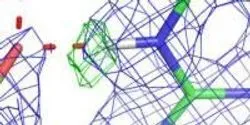Pharma

Antibodies are specific molecules that can lock onto a particular cellular structure to start, stop or otherwise temper a biological process. Because they are so specific, antibodies are at the forefront of drug discovery. So drug companies want a faster route to step one: identifying which of the millions of possible antibodies will work against molecules that cause disease.

Big data might bring more benefits to drug discovery than to any other field. For one thing, discovering a new drug turns out to be incredibly difficult. On average, a pharmaceutical company tries about 10,000 drug candidates for every one that ends up on the market. Plus, the process of discovering and developing a new drug costs hundreds of millions of dollars and takes more than a decade—some say more for both measurements.

Scientists from the Florida campus of The Scripps Research Institute (TSRI) have been awarded a $1.5 million grant from the National Institutes of Health (NIH) to develop drug candidates that could treat cancer and neurodegenerative disease.

Eve, an artificially-intelligent ‘robot scientist’ could make drug discovery faster and much cheaper, say researchers writing in the Royal Society journal Interface. The team has demonstrated the success of the approach as Eve discovered that a compound shown to have anti-cancer properties might also be used in the fight against malaria.

A Washington University in St. Louis drug discovery program has received three grants totaling more than $5 million from the National Institutes of Health (NIH) to develop new therapeutics for respiratory diseases. The target illnesses range from the common cold to life-threatening lung disease.

Stanford University announced Jan. 29 that it has received a grant from the Bill & Melinda Gates Foundation to accelerate efforts in vaccine development. The $50 million grant over 10 years will build on existing technology developed at Stanford and housed in the Human Immune Monitoring Core, and will establish the Stanford Human Systems Immunology Center. The center aims to better understand how the immune system can be harnessed to develop vaccines for the world's most deadly infectious diseases.

Enzymes are catalysts that speed up chemical reactions in living organisms and control many cellular biological processes by converting a molecule, or substrate, into a product used by the cell. For scientists, understanding details of how enzymes work is essential to the discovery of drugs to cure diseases and treat disorders.











